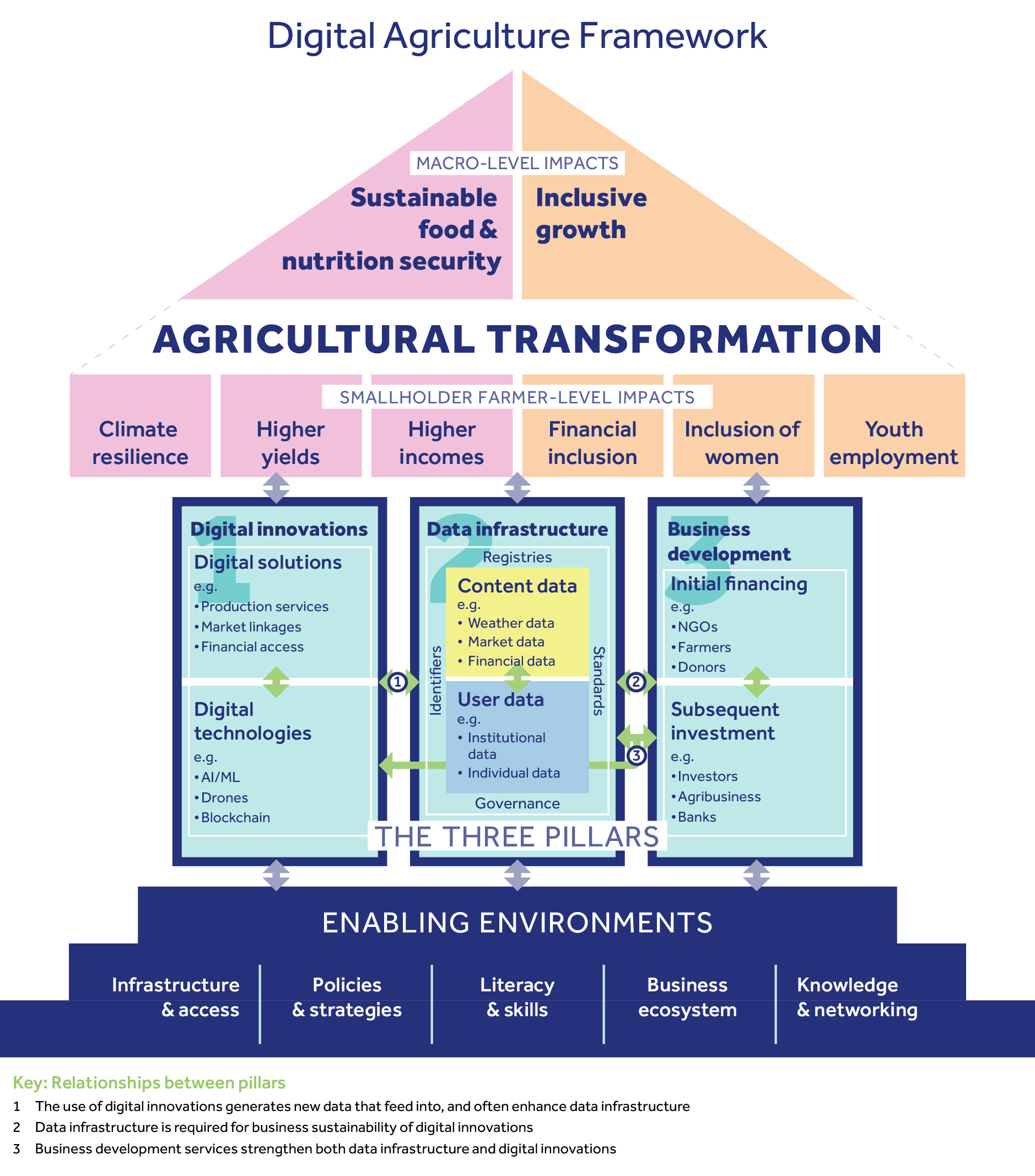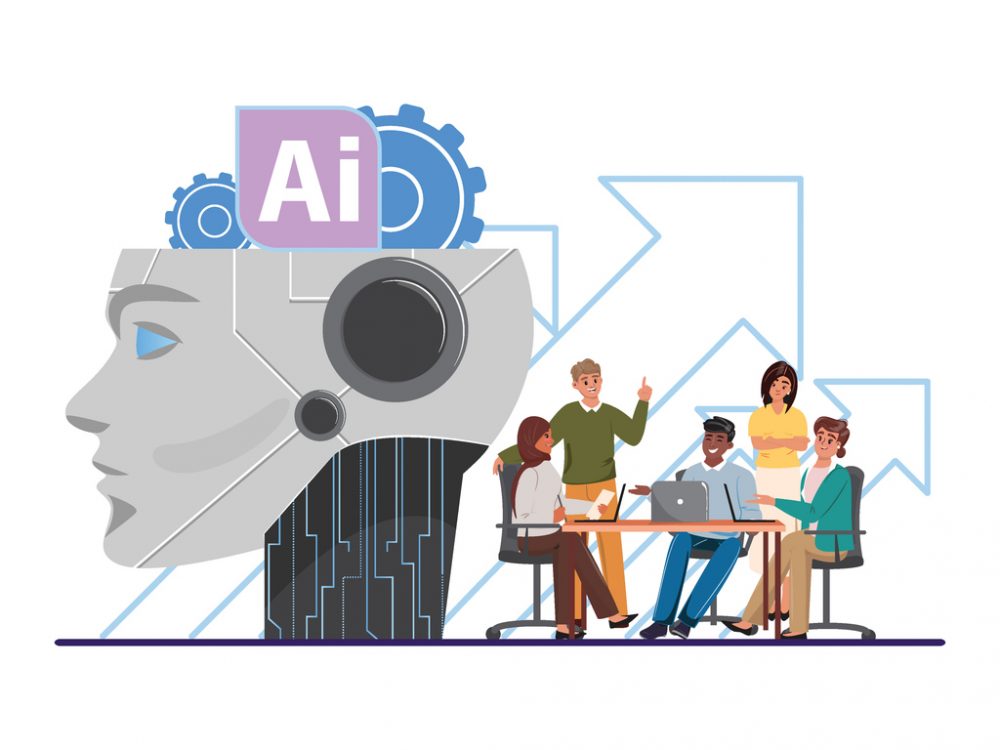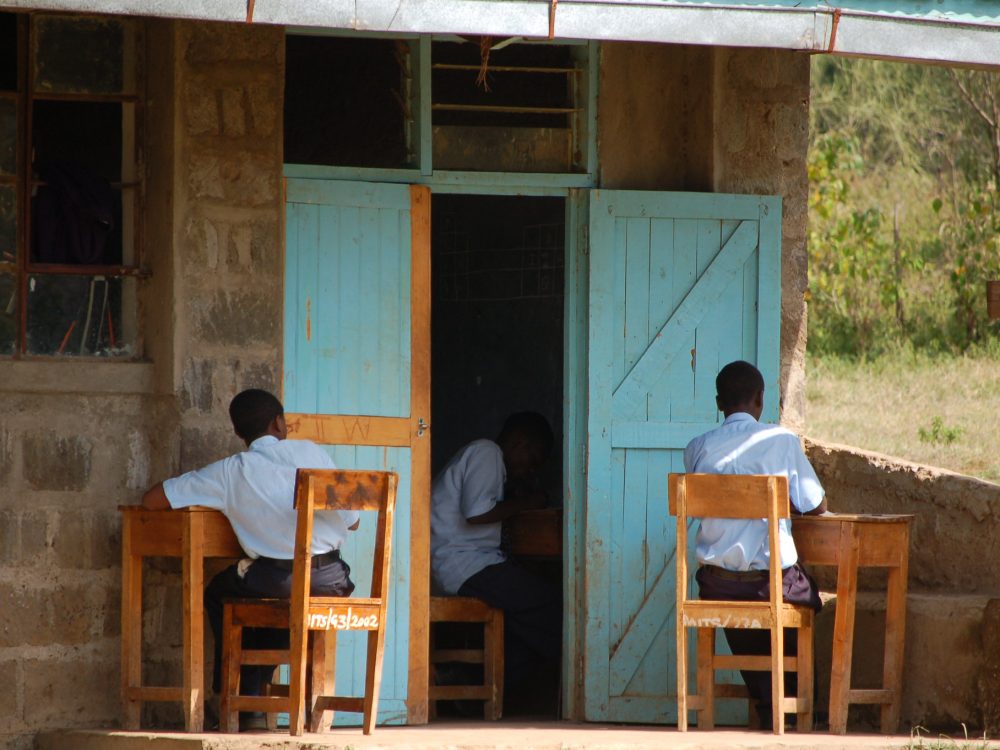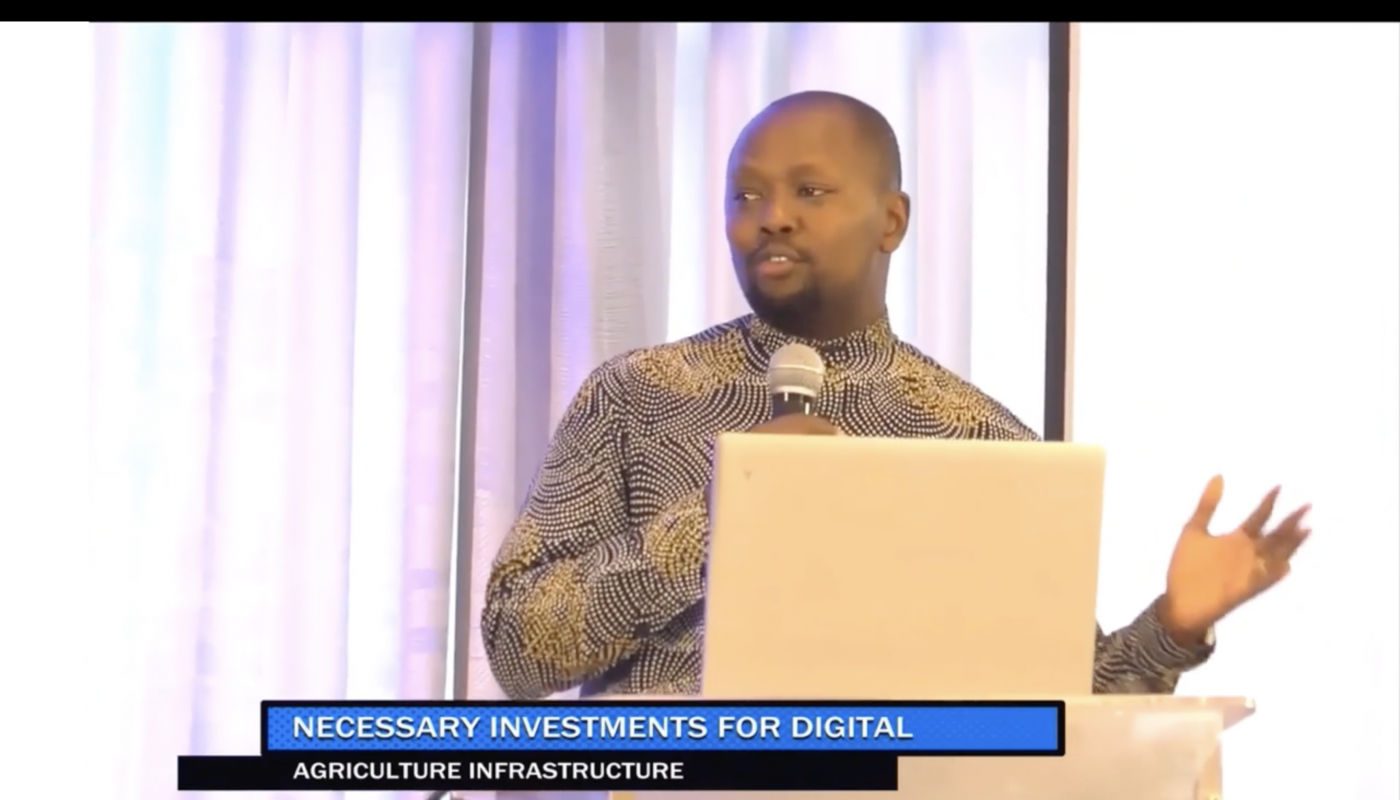Two Recommendations for Accelerating Digital Agriculture and Data Use
With the aim of improving the efficiency of agriculture data use, Development Gateway: An IREX Venture (DG), Jengalab, and TechChange—with a grant from the International Fund for Agricultural Development (IFAD)—recently held a learning event, titled “Digital Agriculture: Building the Agricultural Systems of Tomorrow,” in Nairobi, Kenya. The event marked the one year anniversary since the start of the Digital Advisory Support Services for Accelerated Rural Transformation (DAS) Program, implemented by DG through funding from IFAD and in partnership with Jengalab and TechChange.
Attendees at the event included: regional and country-level government decision-makers; government digital practitioners and advisors; actors from the private sector; development partners; and other implementing partners who are key actors or experts in digital agriculture. Because the event brought agriculture experts together from across sectors, discussions included how best to collaboratively address current issues from a variety of digital approaches and skill sets across different agriculture subsectors.
Participants spent the two-day event discussing how digital agriculture and the necessary infrastructure can be used to drive digital transformation, which is at the top of many African countries’ agendas. Participants explored: the differences between digitalization and digitization; the importance of data security and privacy; and the need to support farmers in adopting technological solutions.
From these and other discussions, participants identified two key recommendations (below) for advancing digital agriculture in order to increase food security. In order to better understand these recommendations, we’ll explore what digital agriculture is and both the promise and current barriers that accompany digital agriculture.
What is Digital Agriculture?
Digital agriculture is a term used to refer to the use of digital tools and technologies (also known as AgTech) in order to improve crop yields, increase productivity and profitability, and/or manage livestock. For example, a farmer might use a marketing app to understand the appropriate price at which to sell a crop or use an app to track weather patterns to determine the best time to plant a particular crop.
Digital Agriculture: the Promise and Barriers in Increasing Food Security
As farmers increasingly use digital agriculture, the agriculture sector has more data on agricultural systems, needs, and outcomes than ever before. Food security throughout the world can be advanced when agriculture stakeholders use this data to create informative systems such as early warning systems that flag crop shortages before they happen and traceability systems that monitor the health and productivity of livestock.
While digital agriculture holds great promise for decreasing food insecurity, the burgeoning landscape of digital agriculture tools is siloed, with a variety of actors who often work in isolation. This siloing results in inefficiency. For example, a plethora of digital agriculture tools that address the same need exists while some needs are going unaddressed. In other cases, the data collected with digital agriculture tools isn’t shared with stakeholders in a timely, usable, or optimal manner, if at all. This inefficiency has prevented the full potential of agriculture data use.
Additionally, there are infrastructural barriers. A common hurdle that was highlighted by different country representatives was poor network and connectivity issues, especially in rural areas. Referring to an assessment conducted on Digital Information Systems in Sudan, Atika Marouf from IFAD Sudan pointed that, “The feedback we got from farmers is that the network is very weak in remote areas, some of them do not have electricity, and others are illiterate.”
In order to help address these barriers and other issues, participants at the “Digital Agriculture: Building the Agricultural Systems of Tomorrow” event identified two recommendations on how to advance digital agriculture.
Recommendations
- Create a holistic approach to digital agriculture at the country-level in order to build an impactful strategy for agriculture data, which can promote food security. The basis of this discussion centered on the Digital Agriculture Framework, a strategic guide for digital agriculture which was developed by The Commonwealth Secretariat. The Digital Agriculture Framework outlines how, with the appropriate environments and initiatives, digital agriculture can go from improving local agricultural work to having macro-level impact—such as advancing food security and creating a more inclusive and sustainable agriculture sector in a given country.

In discussing the Digital Agriculture Framework, participants identified the need for a given country to be consistent and unified in the implementation of digitalization across agricultural sectors within the country. Having a consistent and unified approach in digitalization—which is the process of leveraging digital technologies to advance business practices, improve efficiency, and increase revenue—will allow national governments to identify and implement strategies and policies for advancing digital agriculture at the country level. This approach will also provide data that can be used for the creation of an index for monitoring, assessing, and comparing how countries are leveraging digitalization at the international level.
The Importance of Interoperability
As governments move to invest in and deploy digital infrastructure for agriculture, understanding how digital systems can exchange data, share it, and ensure it is protected and managed safely (or interoperability) is essential. Event participants discussed different models of data infrastructure and sharing with examples that draw from different sources. These included global examples (CGIAR’s Big Data for Agriculture) and continental examples in Africa, Kenya’s KUADP.
- Invest in country-level data and digital infrastructure in order to ensure AgTech and agriculture data are used effectively and appropriately. Participants discussed the importance of creating and maintaining country-level infrastructure that responds to people’s needs and safeguards their rights while also enabling agriculture stakeholders to effectively use AgTech. Key components to building infrastructure for digital agriculture include:
- Identifying the best infrastructure for extension services in local, underserved areas in order to advance the use of AgTech in those areas;
- Collaborating with institutions who have already established sustainable business models for extension services, instead of duplicating efforts to address the extension needs of farmers;
- Ensuring data infrastructure is prioritized in government budgeting (government speakers emphasized the importance of this priority);
- Providing capacity-building training for farmers on the AgTech that’s adopted and used;
- Identifying solutions and standards to allow for better manage of data and support governments in collecting and using farmer data to improve policy work and extension support to farmers; and
- Creating a data governance structure that outlines how agriculture data and findings are shared and ensures data privacy and security laws and best practices are followed.
Next Steps: Making Space
Going forward in DG’s work on digital agriculture, we plan to:
- Host several events in order to continue to create space for learning exchange across IFAD and with critical external partners;
- Publish communications around what doesn’t work well and to share where digital agriculture initiatives can take a different direction; and
- Continue to create space for collaboration. Partnerships between private and public, big and small development partners, development partners and the private sector, are critical to sustainable uptake and use of digital agriculture tools, systems, and data.
Stay tuned for more as we discover what does and doesn’t work well in digital agriculture initiatives!
Share
Recent Posts

Beyond Kigali: Where Does Africa Go from Here with AI?
As governments, funders, entrepreneurs, and technology leaders rally around the AI moment and move towards actions, at Development Gateway, we are asking a different set of questions: Where is the data, and what is the quality of the data behind the algorithms? How will legacy government systems feed AI tools with fresh and usable data? Are Government ministries resourced to govern and trust the AI tools that they are being encouraged to adopt?

Shared Struggles, Shared Solutions: Education and Cross-Sector Data Use Insights
This blog draws on DG’s experience in climate, health, aid management, and agriculture to explore connections between the challenges of data collection, data hosting, and data governance across different sectors and what the solutions to overcoming them can teach us about strengthening education data systems.

Economic Toll of Tobacco-Related Diseases in Kenya: New Research Findings
Development Gateway: An IREX Venture (DG) is pleased to announce the publication of a research manuscript on the Economic Costs of Tobacco-Related Illnesses in Kenya. This research was carried out as part of the Tobacco Control Data Initiative (TCDI) activities in Kenya and is part of a broader report on Morbidity and Mortality from Tobacco Use in Kenya.

